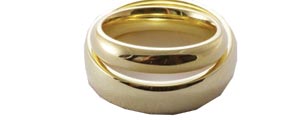
WHEN the internationally acclaimed Tina Turner divorced with Ike Turner in 1978, she openly said her husband could take everything away from her, but not the surname.
Report by Jairos Saunyama
True to her words, she kept on using the surname. It is clear that most divorced women are reluctant to shed their former partners’ surnames and most of them have carried them to the grave.
Many women who have been divorced for years continue to hold on to the name from the marriage. Some have even gone as far as wearing their wedding rings, giving the impression that they are still legally married.
In an interview with different divorced women, most said it is a personal choice for them to keep their married name.
“After parting ways with my husband of 15 years, I found it difficult to change the surname because of my children.
“I could not do it to call myself Nancy Mukaro my maiden name from Nancy Chiwambo my married name.
“I realised that it would complicate my children’s relationship with both their parents,” said a divorced woman from Marondera. Another divorcee Sarah Ruwangu echoed the same sentiments and added that it costly to change the name.
- Chamisa under fire over US$120K donation
- Mavhunga puts DeMbare into Chibuku quarterfinals
- Pension funds bet on Cabora Bassa oilfields
- Councils defy govt fire tender directive
Keep Reading
“Reverting to your maiden name may advertise to colleagues and clients that you’re now single and this draws unwanted attention. “I have been married for 20 years and all my documents carry my ex husband’s surname. I cannot even think of changing the surname because I know it is very difficult,” she said.
Local social worker Darlington Nyabiko said it not easy for divorced women to change to their maiden names.
“There are usually three reasons why most women keep their surnames and the first one is that the children have the same surname. If children were born within the marriage, it’s likely they have their surname.
“This is also called the family name. Many divorced women, especially with younger children, choose to keep the same surname as their children.
“The family name also helps the children to form their identity. Having a mother with a different last name may lead to self-esteem issues.
“The second reason is about costs. It is very expensive and costs time to change everything back for example mortgages, licences, credit cards and bank accounts.
“All need to be changed and the woman will need proof of the name change, then you have to wait for approval for the change from each institution.
“The last reason is all about identity. With your new last name, came a new you. The woman changes from being a girl (hence the term “maiden” name) and joins a new family.
“Does divorce mean she is now that maiden once more? The married name often goes hand-in-hand with a mature woman and all her adult friends will never respect her,” he said.
Marriage counsellor and pastor Beaula Chirume said: “To change or not to change?” usually comes under consideration at some point in a woman’s divorce process. If she hyphenated her name when she married, had a short-term marriage or did not have children, she usually opts to return to her birth name.
“The situation is more complex when the marriage is longer-term, there are children, or a woman uses her married name professionally. “Some divorcing mothers are hesitant to change back to their birth name because they feel it will be confusing for the children to have a different last name.
“They are concerned that a greater alliance will exist with the father because of the shared name,” she said.











